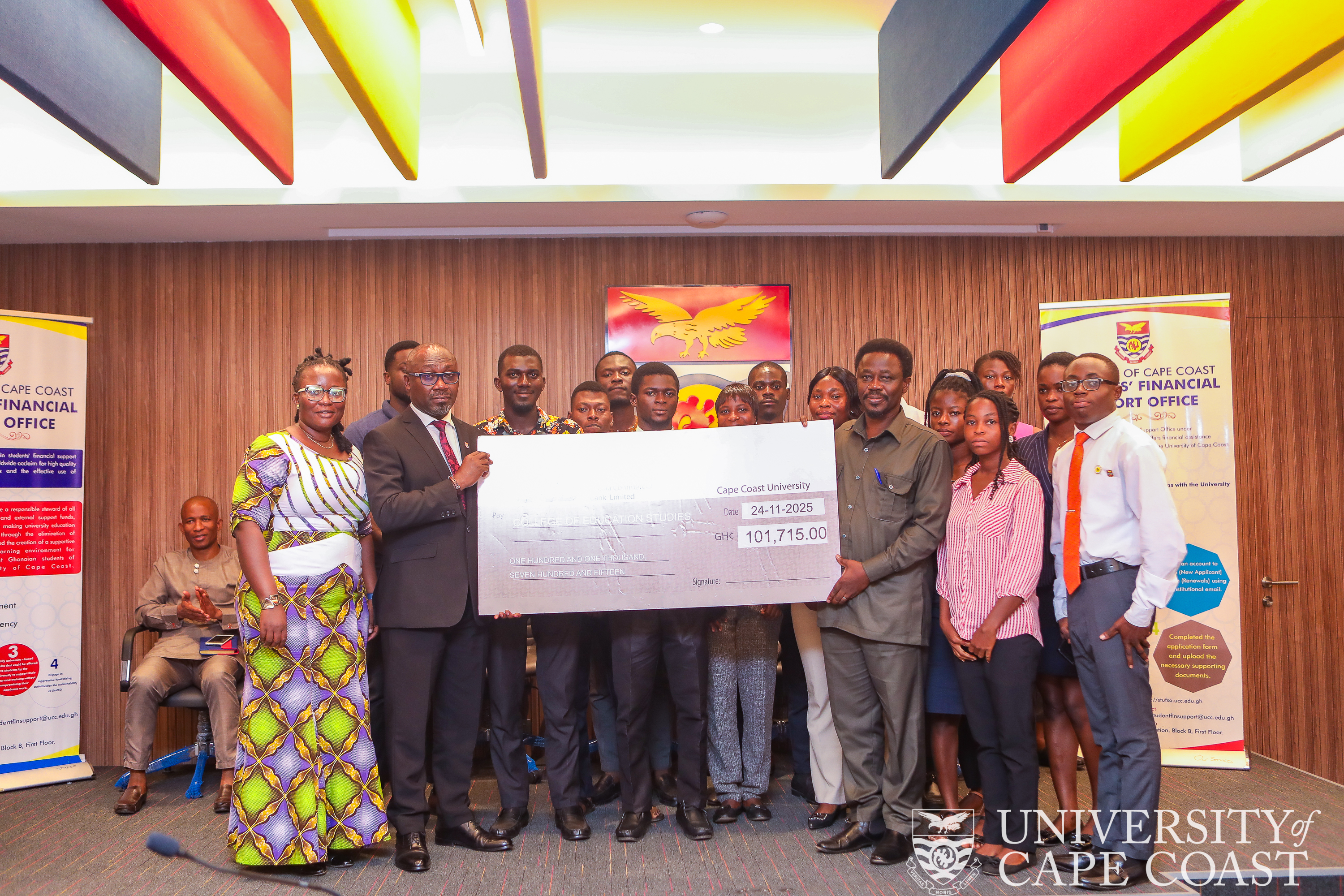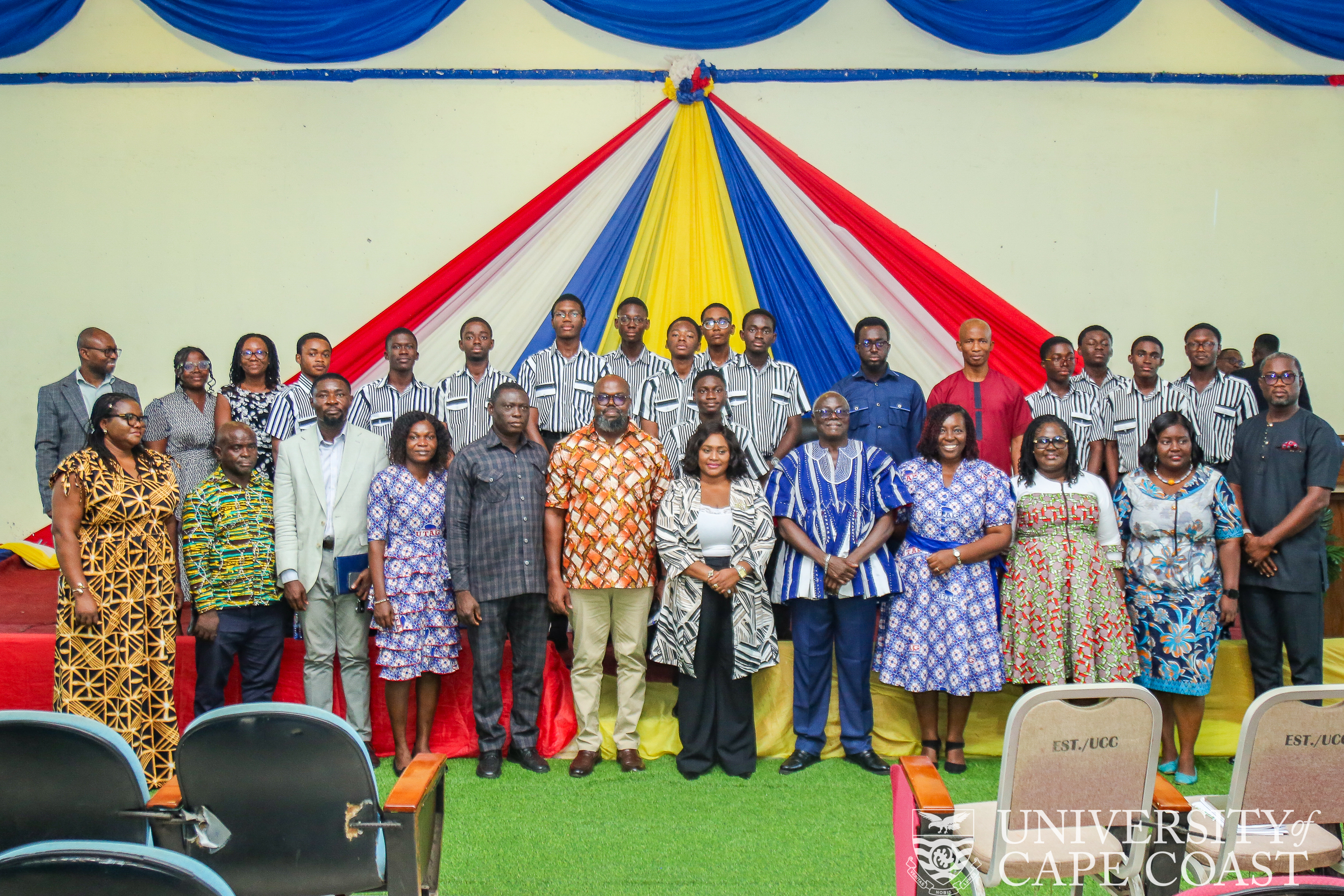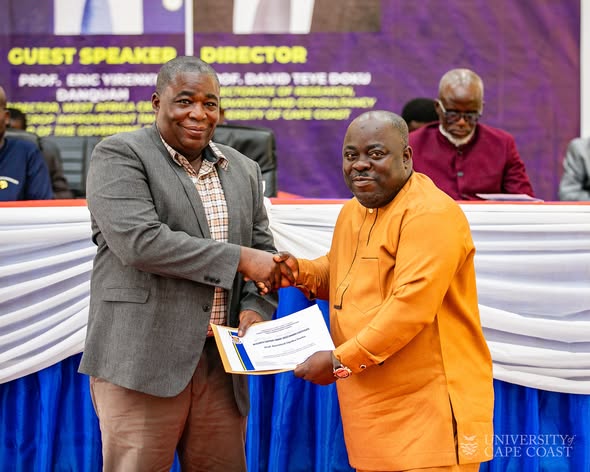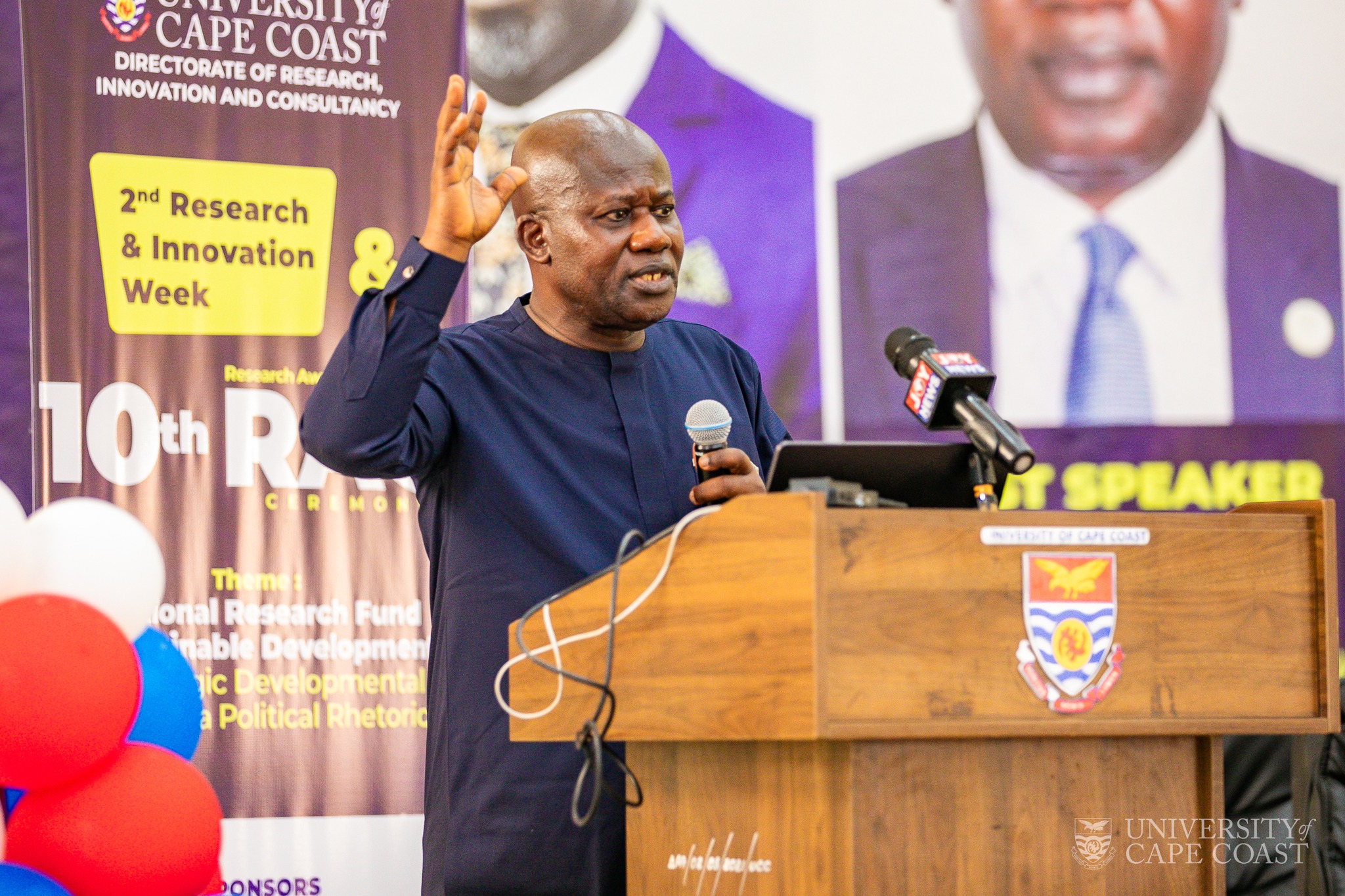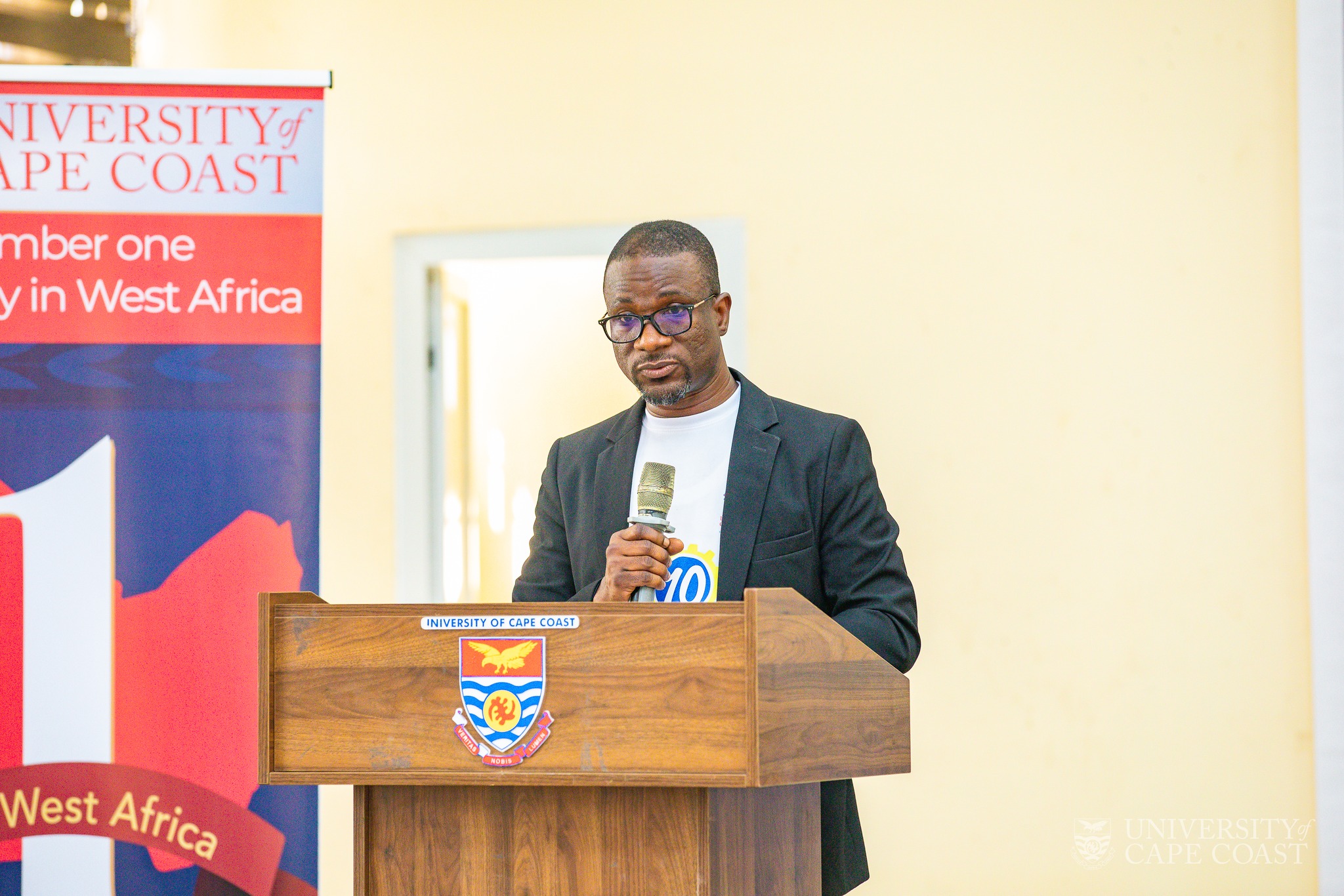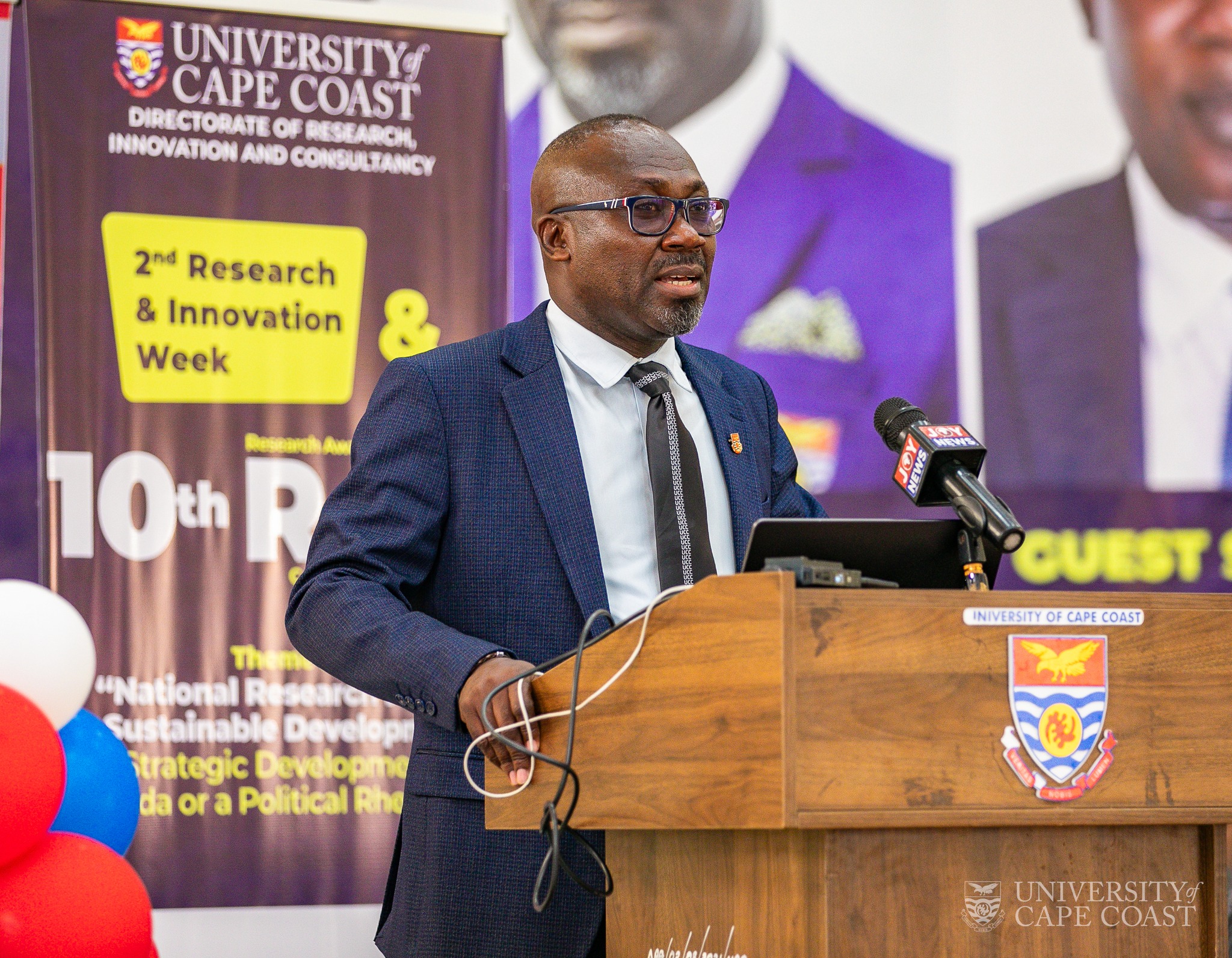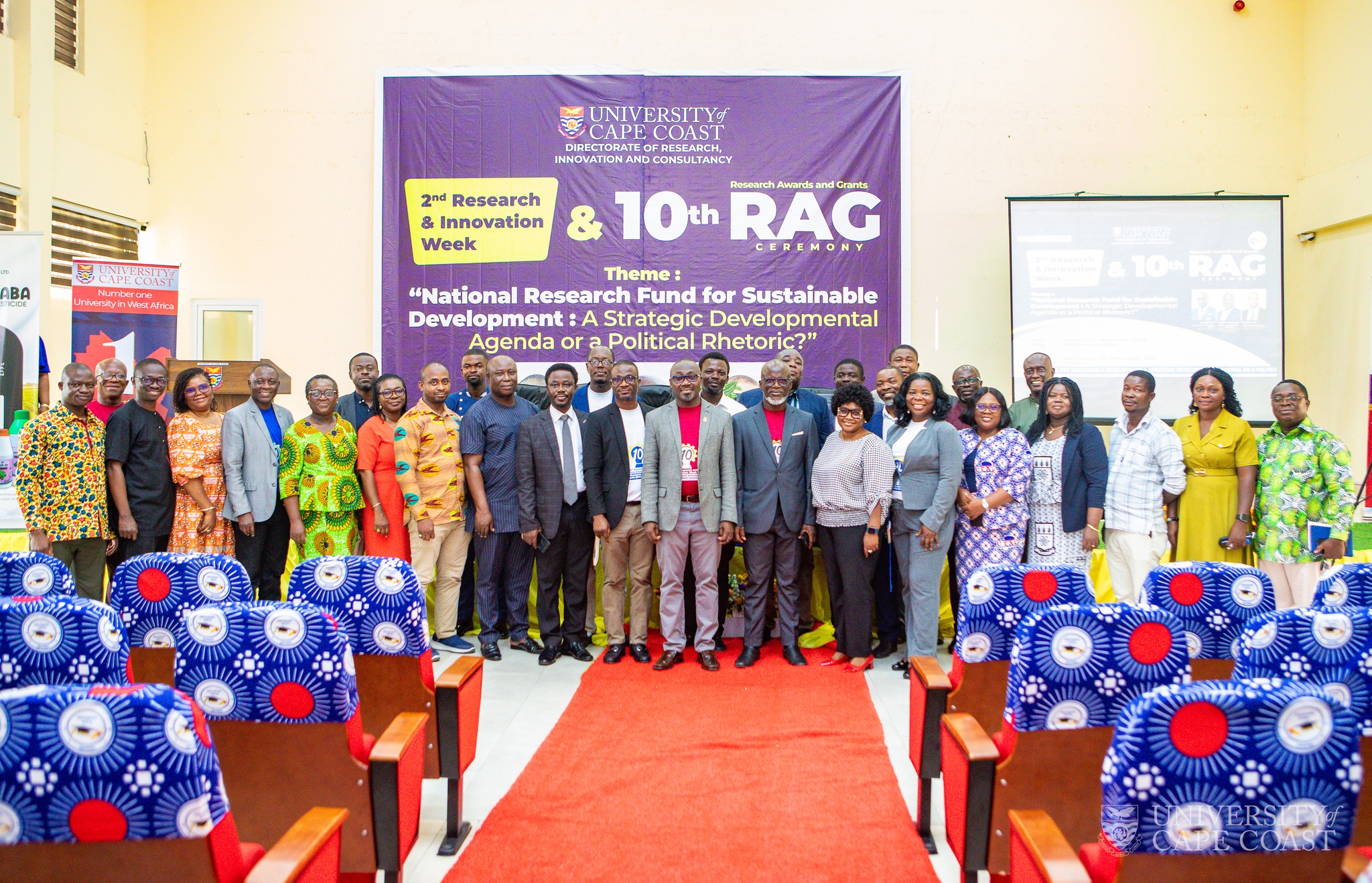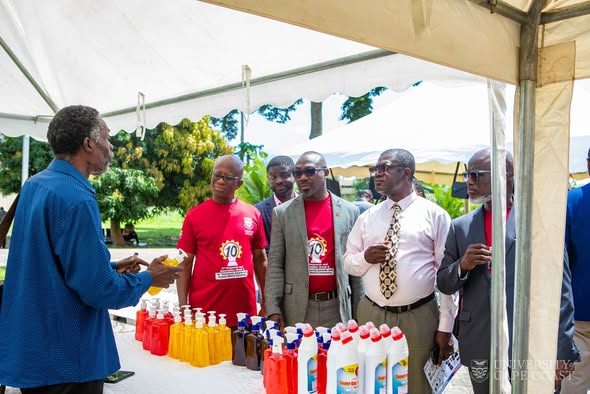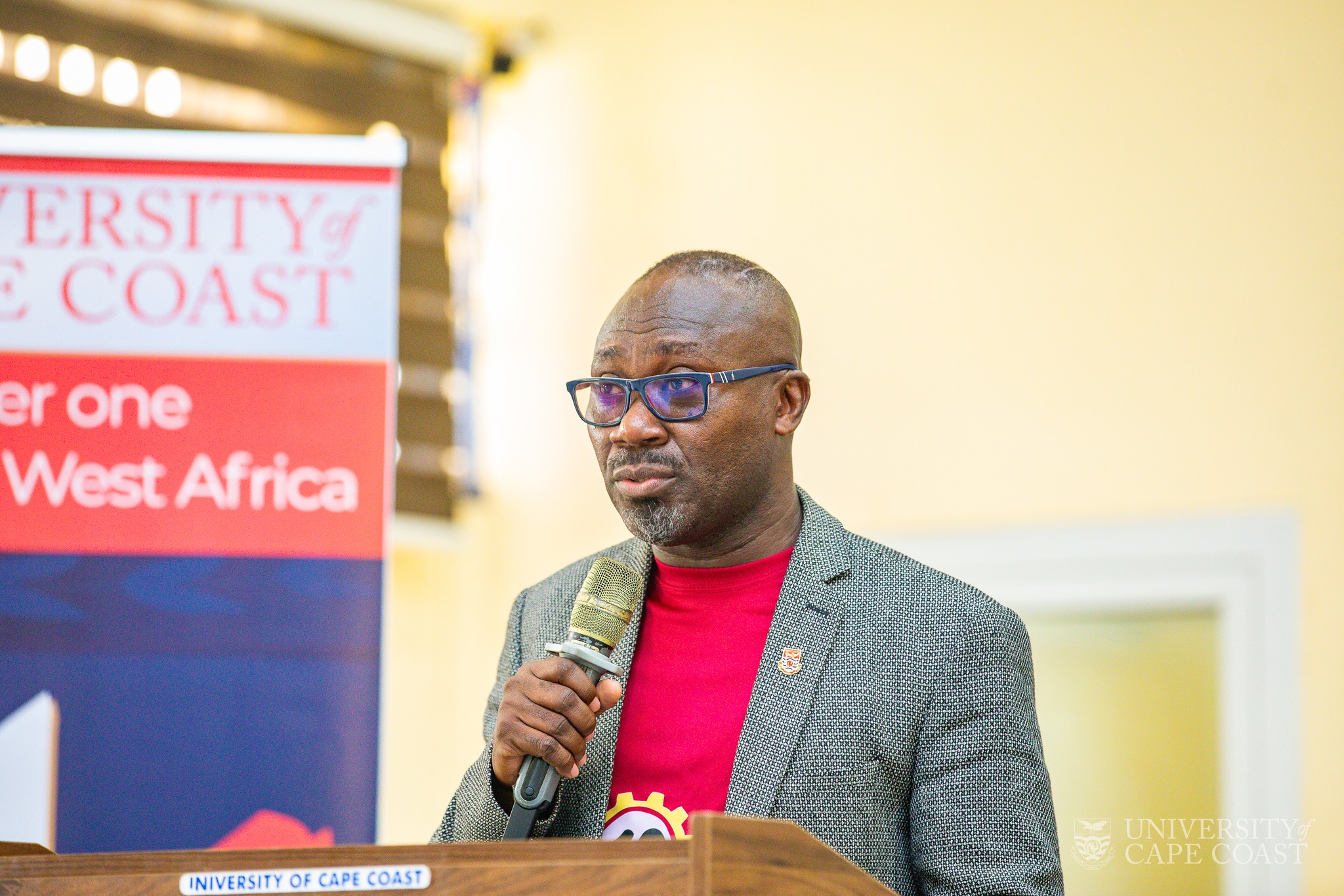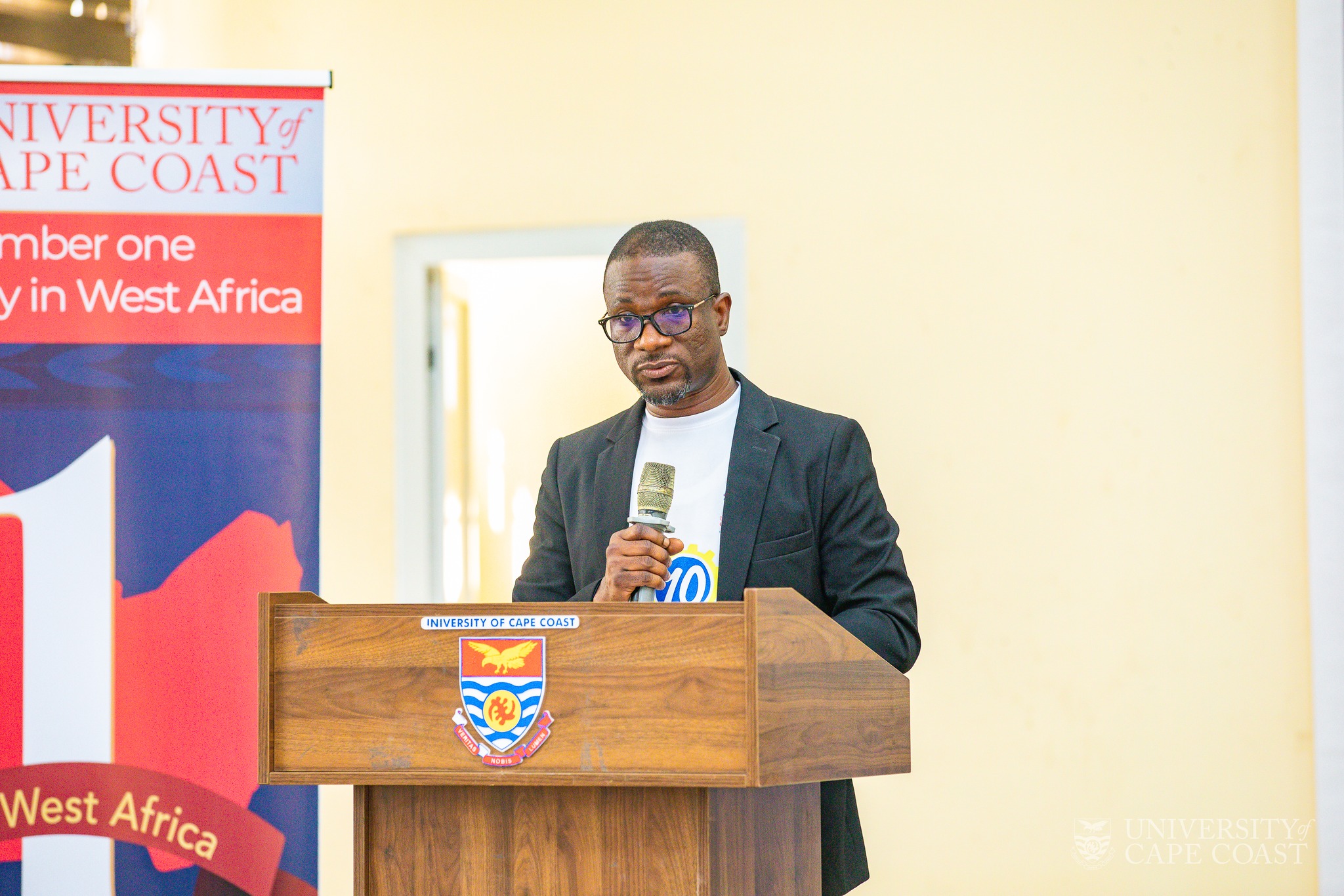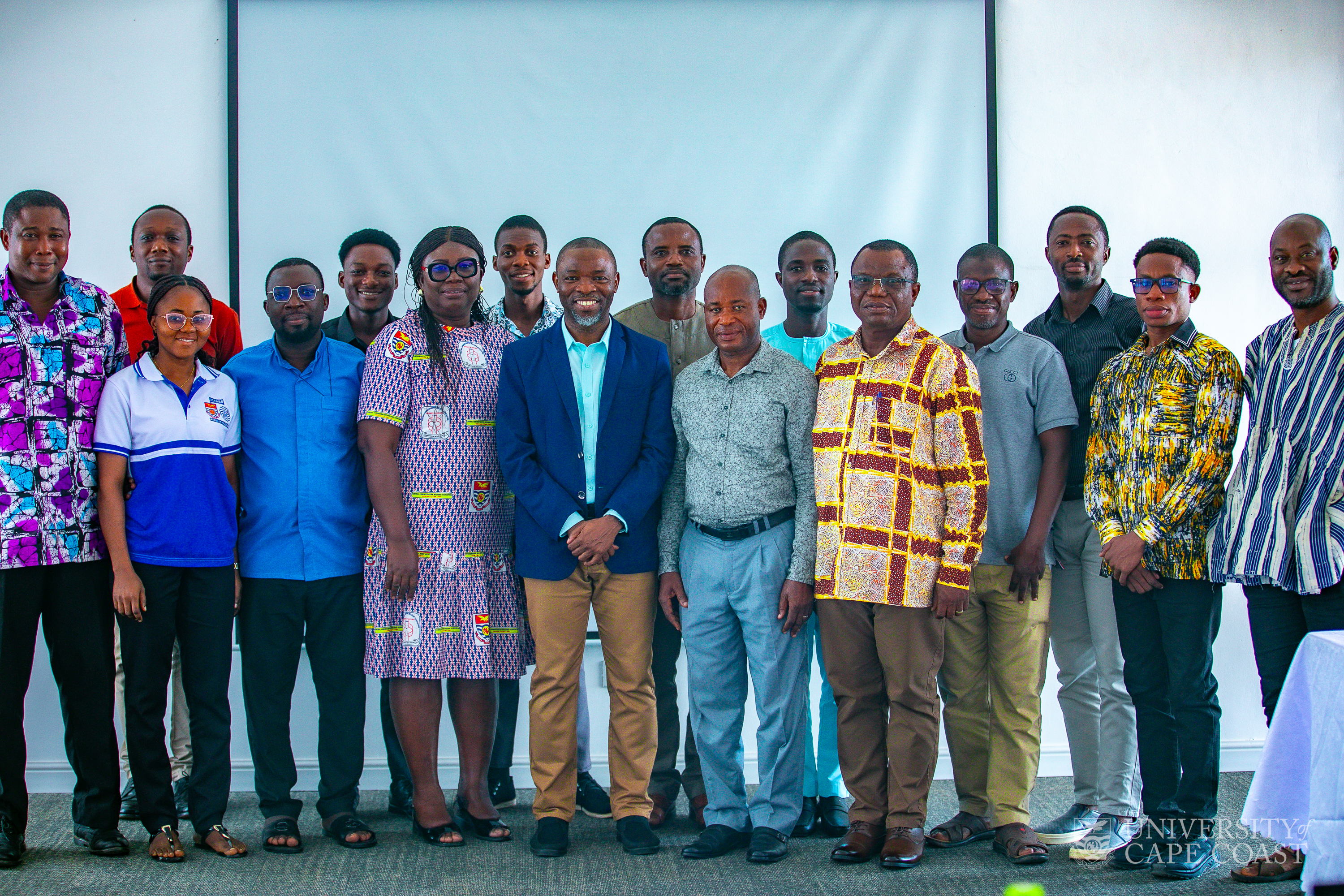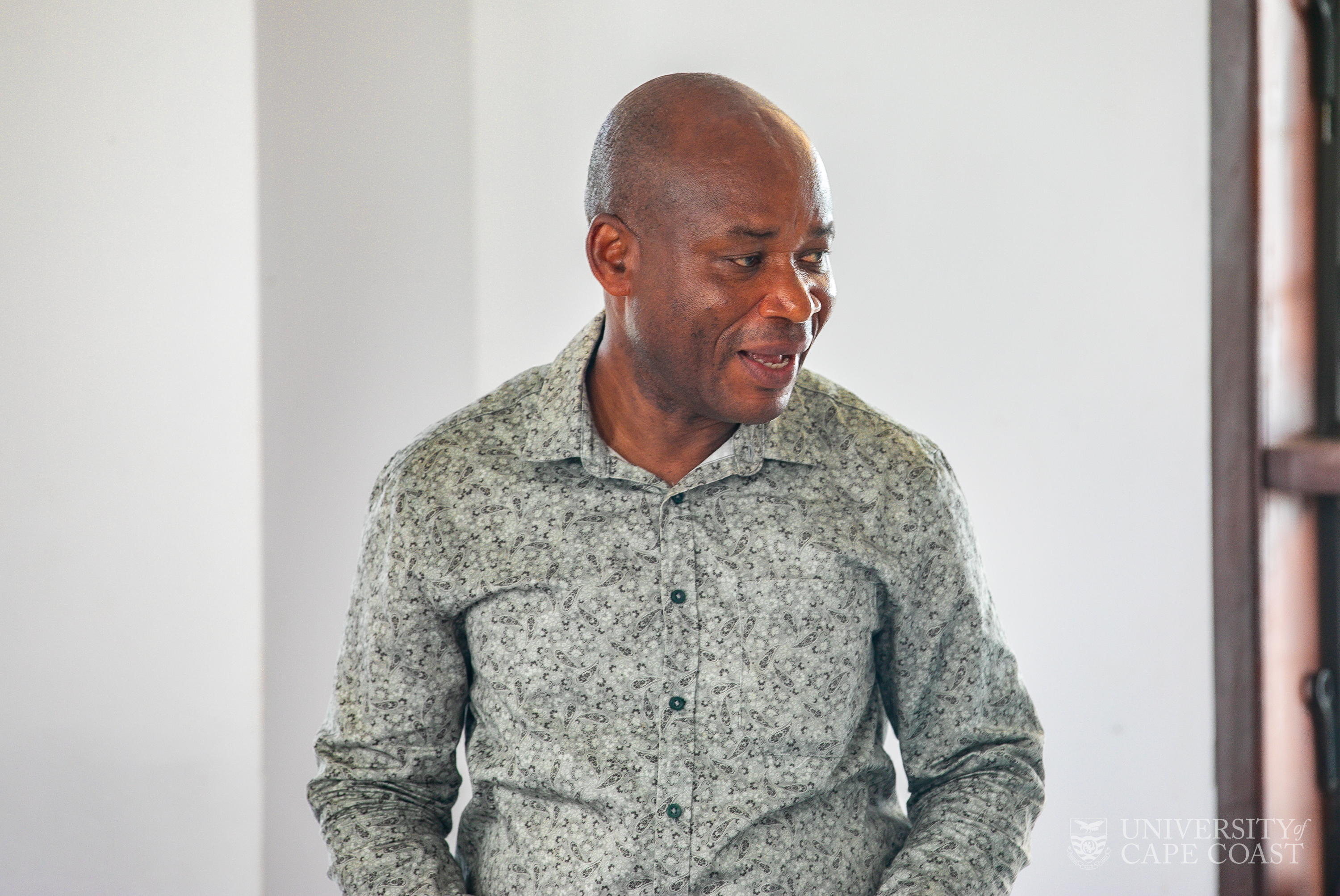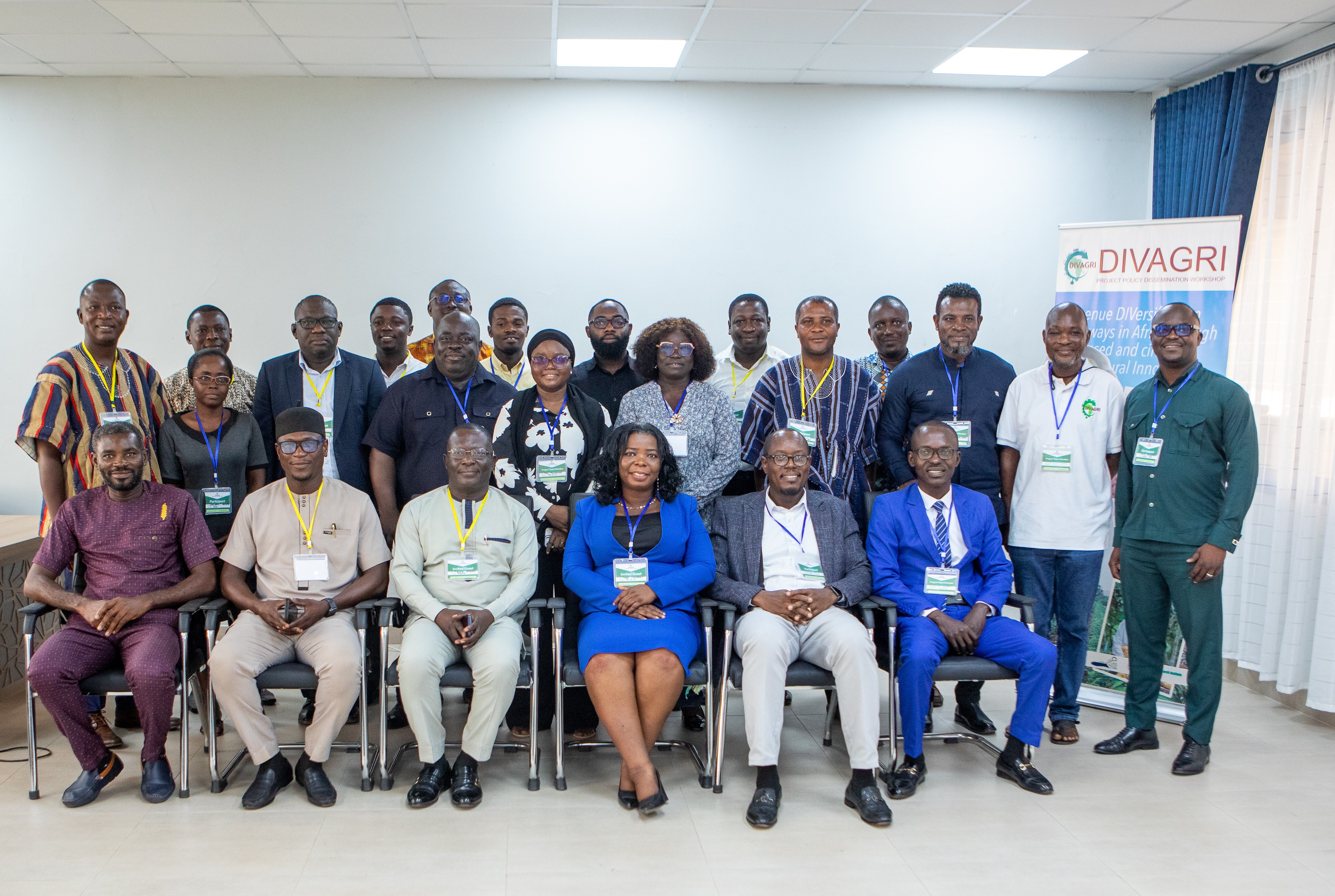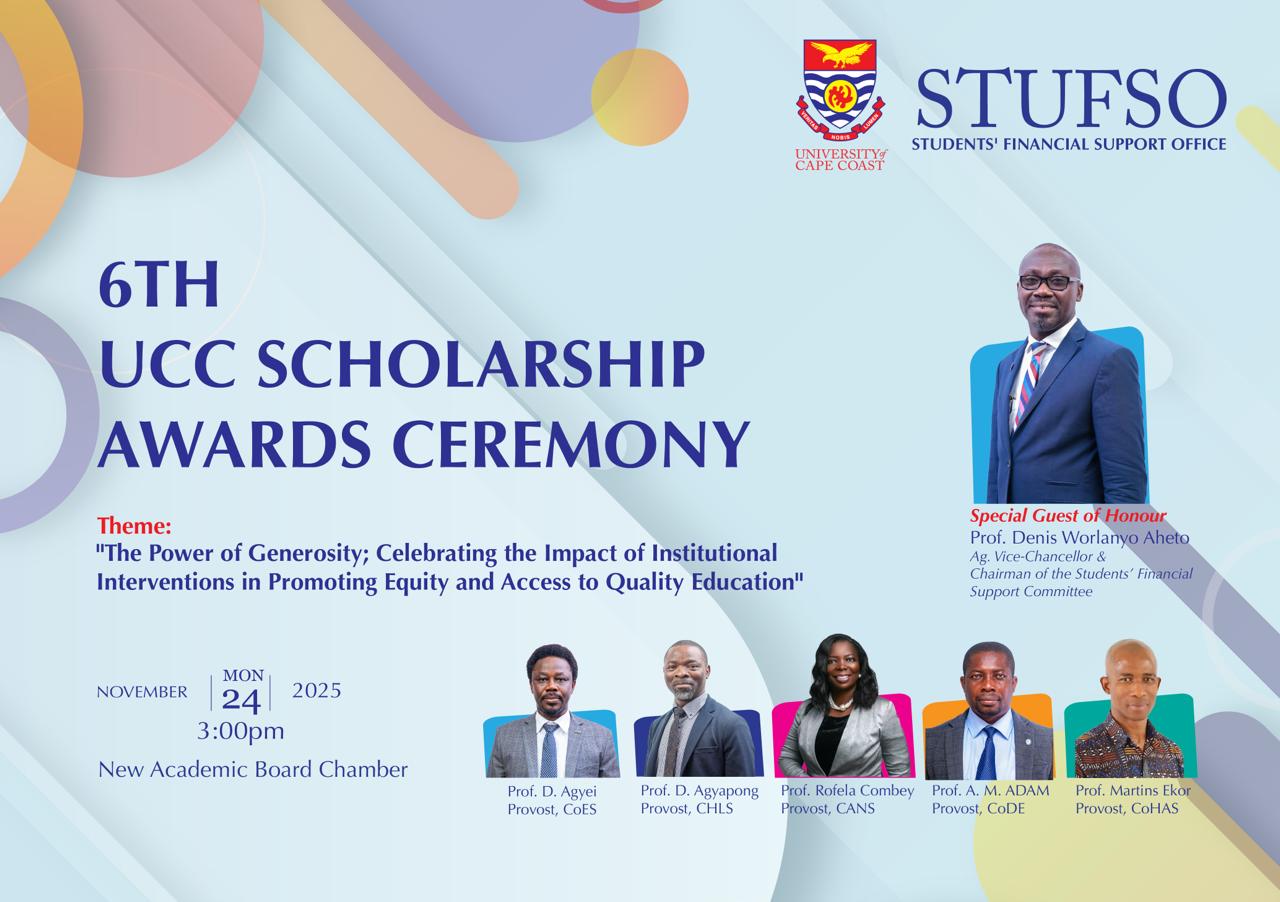The University of Cape Coast, UCC, through the Students' Financial Support Office (STuFSO), has awarded full tuition scholarships to 220 students pursuing various courses for the 2025/2026 academic year.
Beneficiaries were selected from all five colleges of the university and the School of Graduate Studies.
The theme for the awards ceremony was, “The Power of Generosity: Celebrating the Impact of Institutional Interventions in Promoting Equity and Access to Quality Education”. It was attended by some high-level university officials, including the Acting Vice-Chancellor, Prof. Denis Aheto.
Prof. Denis Aheto.
Presenting the awards, Prof. Denis Aheto noted that the scholarship awards had opened opportunities for the recipients to pursue knowledge, develop relevant skills and carve a career path for their future.
Prof. Aheto advised the beneficiaries to show gratitude to their benefactor by studying hard to make the scholarships worthwhile.
“To the scholarship recipients, today is a reminder that your journey carries purpose. You are beneficiaries of institutional generosity, but you are also its future ambassadors. Use this opportunity well. Excel academically, serve your communities, uphold integrity, and remember that the best way to honour generosity is to replicate it in your own way when the time comes,” he continued.
Prof. Aheto stressed that the initiative supports Ghana’s efforts toward inclusive and equitable education, in line with SDG 4.
A beneficiary student
“UCC Scholarship initiative strengthened the broader national agenda for inclusive education that aligned with Ghana’s commitment to the Sustainable Development Goals—especially SDG 4, which seeks to ensure inclusive and equitable quality education for all,” he said.
He urged others who did not benefit this year to apply next academic year.
He commended donors and partners, stressing: “ your generosity is changing lives in ways you may never fully see. Every engineer, teacher, nurse, innovator, or entrepreneur emerging from this initiative carries a part of your legacy. May your noble example inspire others—alumni, corporate bodies, NGOs, philanthropists—to join this mission of transforming lives through education.”
The Chairperson of the Scholarship Selection Sub-Committee of StuFSO, Prof. Samuel Kwesi Nkansah, encouraged the beneficiaries to study hard to prove that they truly merit the scholarship granted to them.
Prof. Samuel Kwesi Nkansah
In addition to financial support, he disclosed that the STUFSO would provide mentorship to scholarship recipients to guide and inspire them throughout their academic journey.
Prof. Nkansah noted that the scholarship selection process was thorough, transparent, and merit-based.
“We are confident that these scholarships will significantly impact the academic journeys of these deserving students,” he added.
The Chairperson noted that the committee expresses its sincere gratitude to all members who dedicated their time and expertise to the process, while thanking the university management for its unwavering support.
A level 200 Computer Science student, Christabel Benewaah, expressed her appreciation for the scholarship, noting that the support would motivate her to excel academically.
A beneficiary, Sampson Osei, highlighted the timeliness of the financial assistance, stressing that it had come at a critical moment in his academic journey.
Another new beneficiary, Fauzia Ibrahim, expressed her gratitude, saying she was overwhelmed with joy and that the scholarship reduced the burden on her parents.

